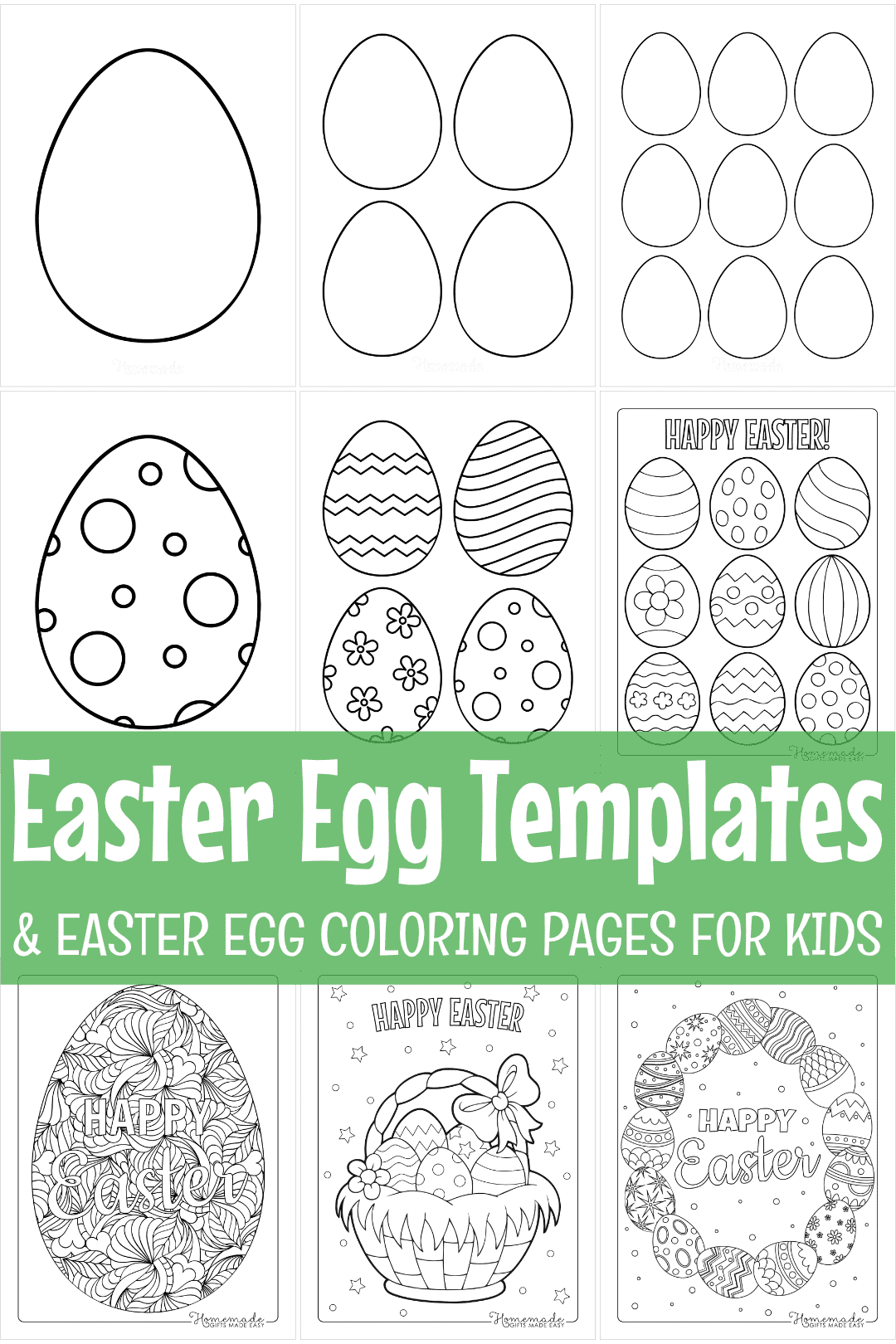Last updated: March 4, 2024
Blue and green are very similar colors, so figuring out what color blue and green make together can be a matter of opinion. Some people will see teal. Others will see aqua or cyan. Still others will claim that blue and green make turquoise. So what’s the truth? Well, it’s kind of all of the above!
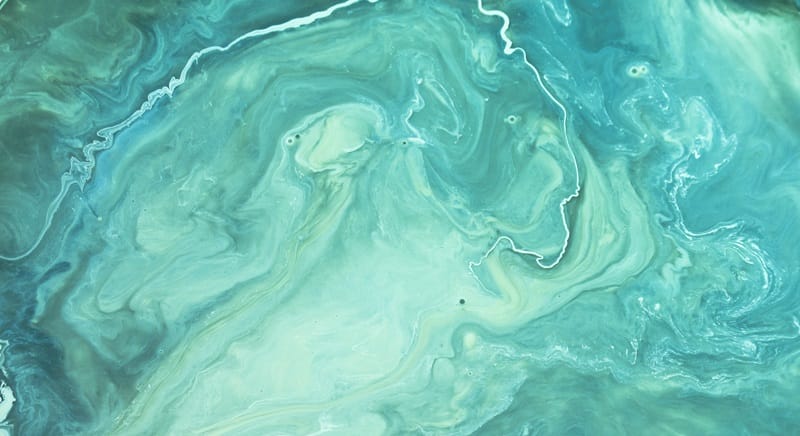
Blue and green can make a range of colors when mixed together. It depends on how you mix them and what your goal is. We’re going to explore all the fun colors blue and green make, plus some places where you can find these colors so you can apply them in your everyday life for fun arts and crafts.
Blending Blue and Green |
Making Turquoise |
How to Mix Blue and Green |
Color Relations |
Teal in Nature |
Decorating with Teal
What Does Blue and Green Make?
Blue and green can make several different fun colors depending on how you mix them. Let’s take a look at a few of our favorites!
Teal
Teal is a beautiful color that you can make from blue and green. It has the brightness of blue and the depth of green. Think of a deep pool of tropical water. The color you’re imagining is probably pretty close to teal. It isn’t as bright as some other colors you can make from blue and green, having a bit more green in it than other mixes.
Aqua
Aqua is the color you think of when you think of clear ocean water. It is a brighter blue than teal, but not as bright as cyan. You can still see the influence of the green in the mixture. It gives aqua the appearance of deep water rather than a shallow pool.
Cyan
Finally, cyan is the brightest of the three mixtures of blue and green. We started with teal and worked our way over to bright, vibrant cyan, where the blue tones are almost neon in appearance. This color is less natural than teal or aqua because it is so eye-catching and bright.
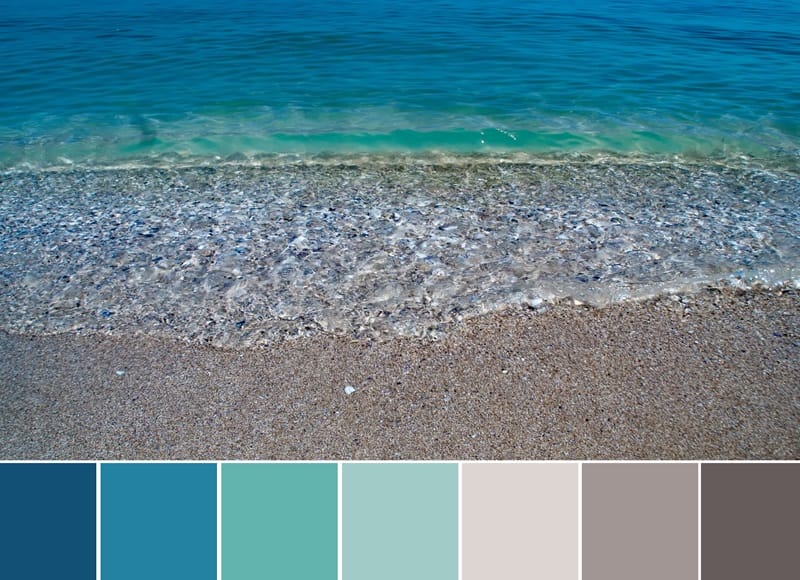
What Colors Make Turquoise?
There’s one more important color to talk about when we discuss what blue and green make, and that’s turquoise. Turquoise isn’t quite teal, but it’s not aqua either. It’s certainly not as bright as cyan. It falls somewhere between the mellow tones of teal and the deep blue of aqua.
It’s important to consider all these mixtures of blue and green. If you were coloring an ocean scene in a coloring book, for example, you might want to color the deepest part of the water teal, then work your way up to turquoise and finally aqua as the water got lighter near the surface.
How Do You Mix Blue and Green?
Now you know what colors blue and green make, but how do you actually mix those colors? That will depend on your medium and materials, largely.
For example, if you were coloring a coloring book page, you would probably use colored pencils or markers. In this situation, you’d want to start with blue and slowly add green on top of it, testing to see how the colors mixed.
If you were mixing dye or paint, it would be different. You might mix a few drops at a time, going back and forth between both colors to get the exact shade you’re looking for.
One note of caution no matter what medium you use: Use a light hand when it comes to adding black to anything! Black can quickly make your mixture darker, but you’ll struggle to make it lighter again. So be sure you want a darker mix before you start adding any black at all. White is a little less scary. You can add some white to your mix to try to lighten up your colors and if it isn’t looking good to you, it’s easy enough to just add more color and darken it up again.
What Are Blue and Green to Each Other?
That’s an interesting question because blue and green are technically different “types” of colors. When you look at a color wheel, blue and green are close together, but that doesn’t actually mean what you might assume. Blue is a primary color, while green is a secondary color. And what about teal? It’s a tertiary color! If that sounds confusing, don’t worry. We’ll explain.
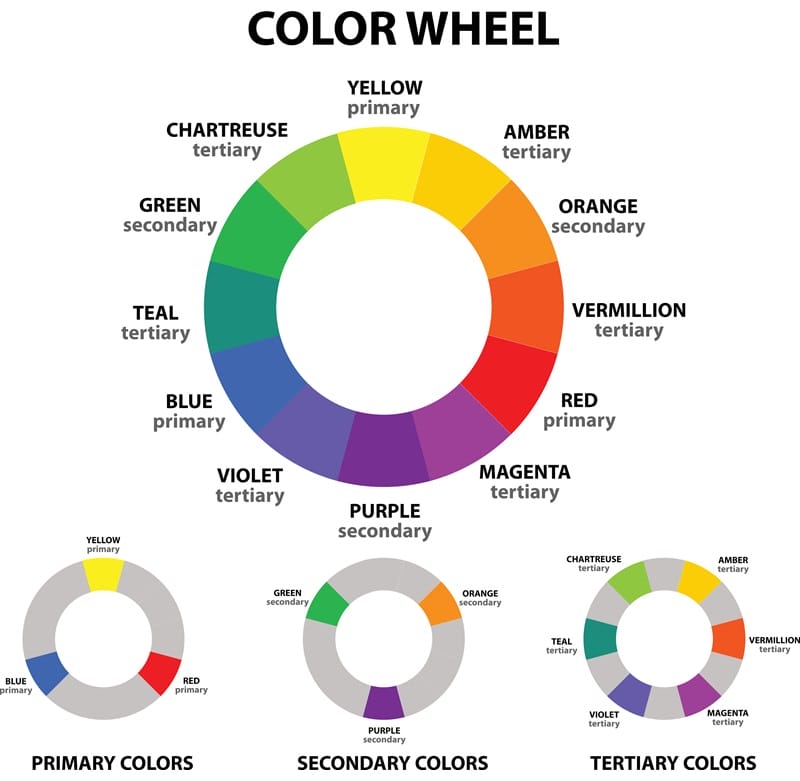
Primary Colors
The three primary colors are blue, red, and yellow. Technically, every other color on the color wheel comes just from these three! And no other colors can truly mix together to make blue, red or yellow. You can get close, but if you want the real deal, you have to go to the primary colors.
Secondary Colors
Secondary colors are green, orange, and purple (or violet). These colors are called secondary because you get them by mixing two of the primary colors. For example, you can make green by mixing blue and yellow.
Tertiary Colors
There’s one more category on the color wheel. The tertiary colors come from mixing a primary color and a secondary color. And that’s where you’ll find teal!
Blue is a primary color. Green is a secondary color. Mix them together and you get blue-green (or teal or aqua or turquoise). And that’s a tertiary color. You can also mix something like yellow and green to get a tertiary color such as chartreuse.
Where Can You Find Teal in Nature?
So where will you actually see colors like teal and aqua in your daily life? As we hinted above, you can find these shades of blue and green a lot in nature. Water is the obvious answer, but that’s not the only place where you can find beautiful shades of teal.
In fact, you might notice teal all around you. The next time you see a tree, take a closer look. Your first thought might be “green,” but leaves can contain more subtle shades that look more like teal in the right lighting.
There are also all kinds of animals sporting beautiful shades of teal. Perhaps you have some teal-colored birds in your neighborhood. Or maybe you can spot some ducks at a nearby park that have teal coloration among their feathers. If you live in a place that has critters like lizards, give them a closer look! Many will have a bit of teal on them.
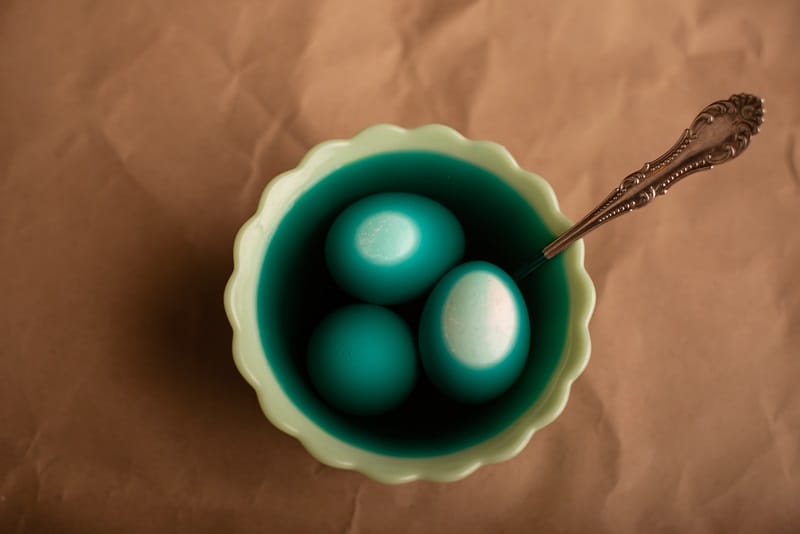
Decorate Your Easter Eggs with Teal
Bring teal into your home and your Easter celebrations by using it as a color for decorating your Easter eggs. Teal is a wonderful color to incorporate into Easter celebrations. The mellow tone suits the season and evokes images of spring and new blooms.
Plus, now you know how to use blue and green to make teal and other colors, so you might as well go wild with it! You can make a teal that’s as humble and sedate or electric and eye-catching as you desire. And if you’re hiding your eggs outdoors, you now know that certain teal tones will blend in pretty well with nature, giving you an extra edge.
Try Mixing Blue and Green on These Fun Coloring Book Pages
Another great place to use your new knowledge is on coloring book pages. Check out these great easter egg coloring pages, where you can use blue and green to make teal, robin’s egg blue, or any other shade your heart desires.
What Other Colors Can I Mix?
Red and Blue Make Purple
Mixing Blue and Pink
Green and Yellow Make
Blue and Green Make



